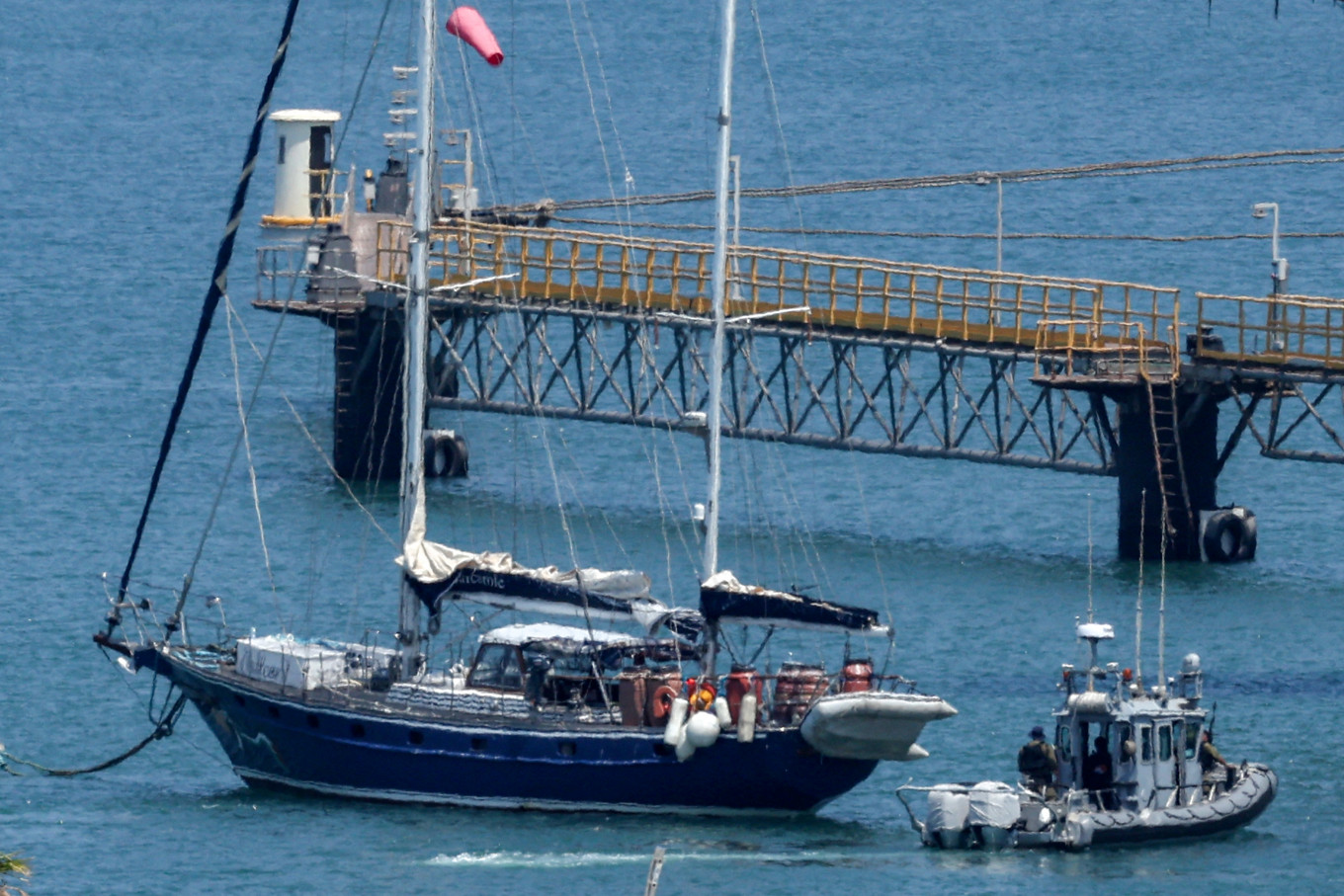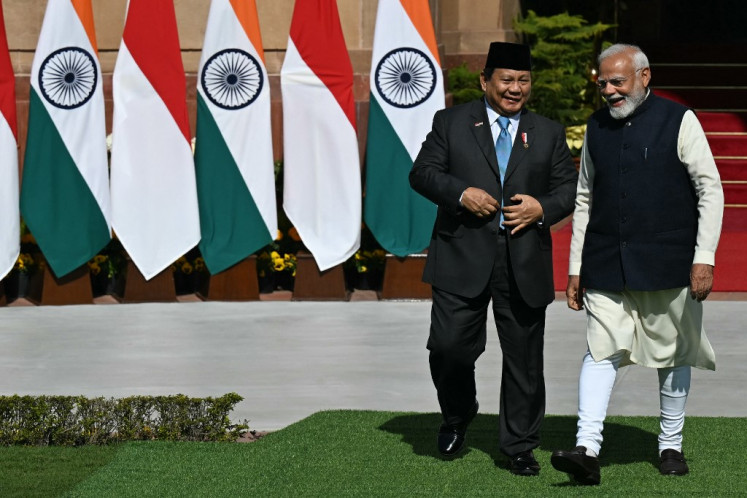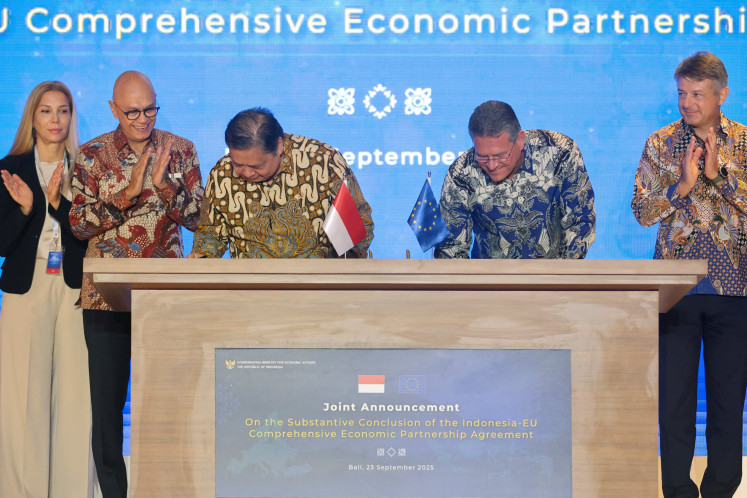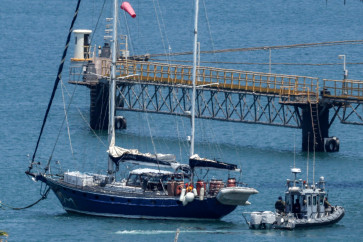Popular Reads
Top Results
Can't find what you're looking for?
View all search resultsPopular Reads
Top Results
Can't find what you're looking for?
View all search resultsIndonesia’s Gaza flotilla and the law of naval blockade
Under blockade law, Israel has the right to intercept neutral merchant vessels attempting to breach the blockade and may lawfully use force, even to the point of destroying the vessels if they resist capture.
Change text size
Gift Premium Articles
to Anyone
A
handful of Indonesian volunteers are embarking on a journey that could make headlines: Boarding ships named after national heroes, Sukarno, Sultan Hasanuddin, Pangeran Diponegoro, Pati Unus and Malahayati, they have joined an international flotilla sailing from Tunisia, aiming to reach Gaza despite the Israeli naval blockade.
Whether these ships are officially registered under the Indonesian flag remains unclear, as public information does not yet confirm their flag status. Their mission carries both a humanitarian purpose and a powerful symbolic message, reflecting Indonesian people’s deep solidarity with their Palestinian counterparts.
The mission takes place against the backdrop of Gaza’s long-standing blockade. Since 2007, Israel has imposed a naval blockade on the Gaza Strip, justifying it as a security measure to prevent the smuggling of weapons to Hamas. For the people of Gaza, however, the blockade has meant severe restrictions on food, medicine, fuel and other essential goods, a humanitarian crisis that has only deepened over time.
Under the law of naval warfare, a blockade is not inherently unlawful. A belligerent may impose a blockade provided that several conditions are met: It must be declared and notified, effective in practice and applied impartially to vessels of all states. These requirements are codified in the San Remo Manual on International Law Applicable to Armed Conflicts at Sea (1994).
By most legal accounts, Israel has met the technical requirements of declaration, effectiveness and impartiality. However, one crucial condition remains contested. The San Remo Manual also states that if the civilian population in the blockaded area is inadequately provided with food and other essential supplies, the blockading party must allow the passage of humanitarian aid.
In practice, Gaza’s population has long faced shortages of food, medicine and fuel. Israel, however, often restricts or tightly controls humanitarian shipments, arguing that such provisions are not a formal requirement of blockade law. This interpretation finds some backing in the Newport Manual of 2025 (second edition), a more recent non-binding document produced by a group of states and experts, which diverges from San Remo Manual on this point.
In peacetime, a ship on the high seas generally enjoys freedom of navigation. A vessel flying a foreign flag may be stopped only under very limited circumstances: If it is engaged in piracy, the slave trade or sailing without nationality.



















